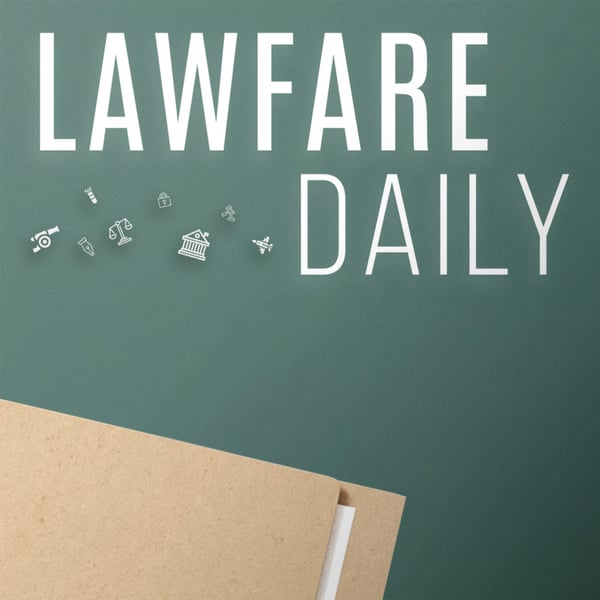Bringing Evidence of War Crimes From Twitter to the Hague
The Lawfare Podcast
The Lawfare Institute
4.7 • 6.2K Ratings
🗓️ 14 April 2022
⏱️ 60 minutes
🧾️ Download transcript
Summary
The internet is increasingly emerging as a source for identification and documentation of war crimes, as the Russian invasion of Ukraine has devastatingly proven yet again. But how does an image of a possible war crime go from social media to before a tribunal in a potential war crimes prosecution?
On a recent episode of Arbiters of Truth, our series on the online information ecosystem, Evelyn Douek and Quinta Jurecic spoke with Nick Waters, the lead on Justice and Accountability at Bellingcat, about how open-source investigators go about documenting evidence of atrocity. This week on the show, Evelyn and Quinta interviewed Alexa Koenig, the executive director of the Human Rights Center at the University of California, Berkeley, and an expert on using digital evidence for justice and accountability. They talked about how international tribunals have adapted to using new forms of evidence derived from the internet, how social media platforms have helped—and hindered—collection of this kind of evidence, and the work Alexa has done to create a playbook for investigators downloading and collecting material documenting atrocities.
Because of the nature of the conversation, this discussion contains some descriptions of violence that might be upsetting for some listeners.
Support this show http://supporter.acast.com/lawfare.
Hosted on Acast. See acast.com/privacy for more information.
Transcript
Click on a timestamp to play from that location
| 0:00.0 | The following podcast contains advertising to access an ad-free version of the LawFair |
| 0:07.2 | podcast become a material supporter of LawFair at patreon.com slash LawFair. |
| 0:14.7 | That's patreon.com slash LawFair. |
| 0:18.2 | Also check out LawFair's other podcast offerings, rational security, chatter, LawFair |
| 0:25.6 | no bull and the aftermath. |
| 0:32.6 | One thing we've been thinking about is, you know, could the companies even be giving |
| 0:37.5 | more control to users by allowing them to even say click a button when they upload something |
| 0:42.5 | that says that they're giving affirmative agreement for this to go into some kind of repository |
| 0:47.9 | for later evidence collection? |
| 0:50.5 | I'm Quinted Jurassic and this is the LawFair podcast, April 14, 2022. |
| 0:57.7 | The internet is increasingly emerging as a source for identification and documentation |
| 1:02.1 | of war crimes as the Russian invasion of Ukraine has devastatingly proven yet again. |
| 1:07.6 | But how does an image of a possible war crime go from social media to a tribunal in a potential |
| 1:13.8 | war crimes prosecution? |
| 1:15.6 | Today, we're bringing you another episode of our Arbitives of Truth series on the online |
| 1:19.9 | information ecosystem. |
| 1:22.0 | On a recent episode, Evelyn Duac and I spoke with Nick Waters, the lead on justice and |
| 1:26.6 | accountability at Bellingcat, about how open source investigators go about documenting |
| 1:31.1 | evidence of atrocity. |
| 1:33.4 | This week, we interviewed Alexa Cainig, the executive director of the Human Rights Center |
| 1:38.6 | at the University of California Berkeley, and an expert on using digital evidence for |
| 1:43.0 | justice and accountability. |
... |
Please login to see the full transcript.
Disclaimer: The podcast and artwork embedded on this page are from The Lawfare Institute, and are the property of its owner and not affiliated with or endorsed by Tapesearch.
Generated transcripts are the property of The Lawfare Institute and are distributed freely under the Fair Use doctrine. Transcripts generated by Tapesearch are not guaranteed to be accurate.
Copyright © Tapesearch 2025.

